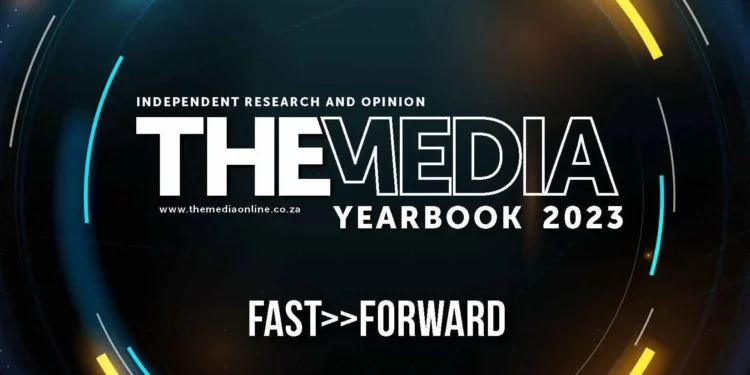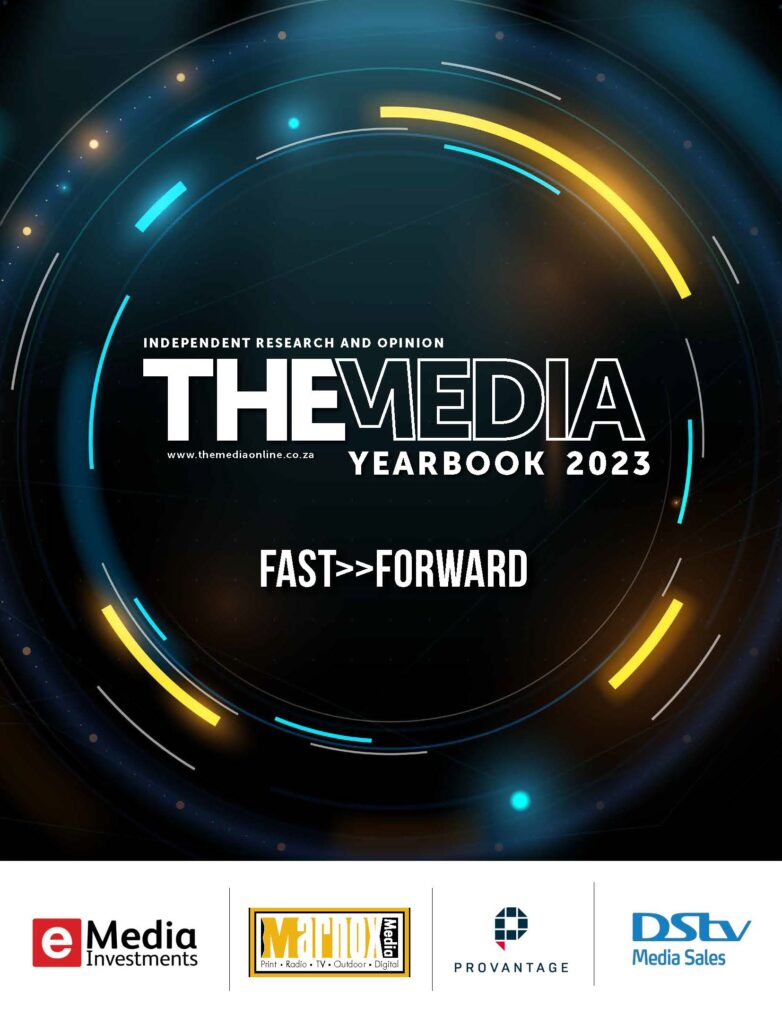I got a call from the managing director of a sales agency a week ago. “Phew!” she said. “I don’t know about you, but I feel as if I’ve already done a year’s work already, rather than just a few short months.”
I agreed. And thought how apt her observation was, as The Media Yearbook 2023’s theme is FAST>>FORWARD. Developments in our industry are hurtling ahead furiously as we try to keep up with the technology, the insights, the data, the investment required to stay on top of all this action.
Advertising and marketing technology is becoming ever more sophisticated. Mohammed Shaikh, media industry leader at Deloitte Africa, writes in his opening piece: “From here on planet earth, to outer space and on to the metaverse, today’s technologies are creating new tomorrows.”
The media and marketing universe is getting to grips with how artificial intelligence will impact the sector. Brands are exploring the metaverse, and how it can engage real people. Technology companies are creating new ways of engaging with consumers, be it in the realms of commerce or content. Data comes at us in waves.
It’s an exciting and nerve-wracking time to be in media. In this issue of The Media Yearbook, we asked contributors to make sense of it all. Which they have done. But what they also make clear is that while we’re navigating an increasingly complex digital world, human beings are still front and centre of all of these developments. Human beings buy the products advertised. They embrace social commerce. They read the news on multiple platforms, the watch video on demand. They spend hours living their digital lives.
All of this is positive stuff. But… As we were putting this issue to bed, The South African Blackout Report was released by researchers BrandMapp and Silverstone, who specialise in researching the middle-class (defined as 13 million personal taxpayers).
And with a big whoosh, we came back down to earth.
When President Cyril Ramaphosa initially shared his dreams of 4IR with the nation in his first address as president, some were sceptical; others embraced his vision. But reality soon bit, as rolling blackouts built up to become an everyday fact of life.
Of course this has affected the media, as the report indicates. Load shedding makes a mockery of stability. “… More than 50% can’t watch TV or stream entertainment such as Netflix. 35% can’t listen to the radio. Almost 50% said that they cannot study or read, and when you isolate the students, that number rockets up to 80%. Tech issues aside, it also affects the basics of life with more than 50% unable to wash their clothes and 19% finding their housecleaning disrupted”.
As a nation, 92% of us believe corruption and criminality are at the root of our problems. Even our famous resilience has taken a knock: “We’ve got to face that 50% of mid- to top-income consumers don’t believe that load shedding will ever come to an end. That level of despondency is reflected also in other survey data that shows that 58% of young adults say they are considering emigrating because of load shedding,” the report notes.
It’s a strange time to be living in. Technology and digital transformation are exploding, yet 61% of us use candles – those useful givers of light from100 years ago – to light our way in the darkness.
But blackouts won’t stop South Africans from making a plan. It’s what we do, one way or another. The technological march will continue, and we will step in time with it. And we’ll draw on our ability to innovate to see us through. I have no doubt about that.
The Media.
Got to love it.
Glenda
PLEASE CLICK ON THE COVER TO READ.















